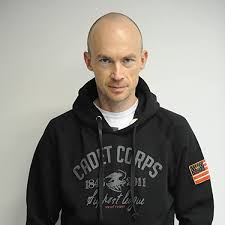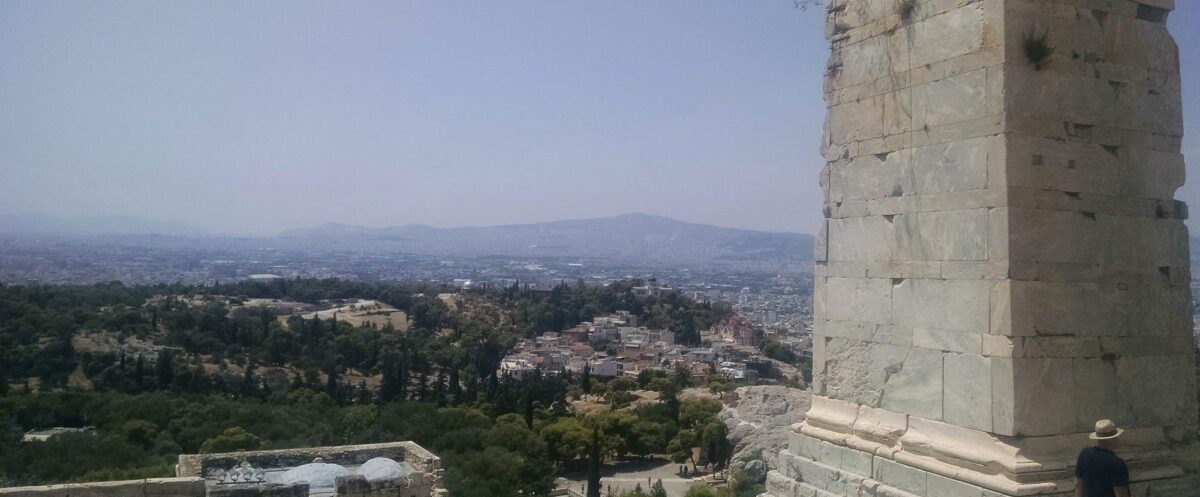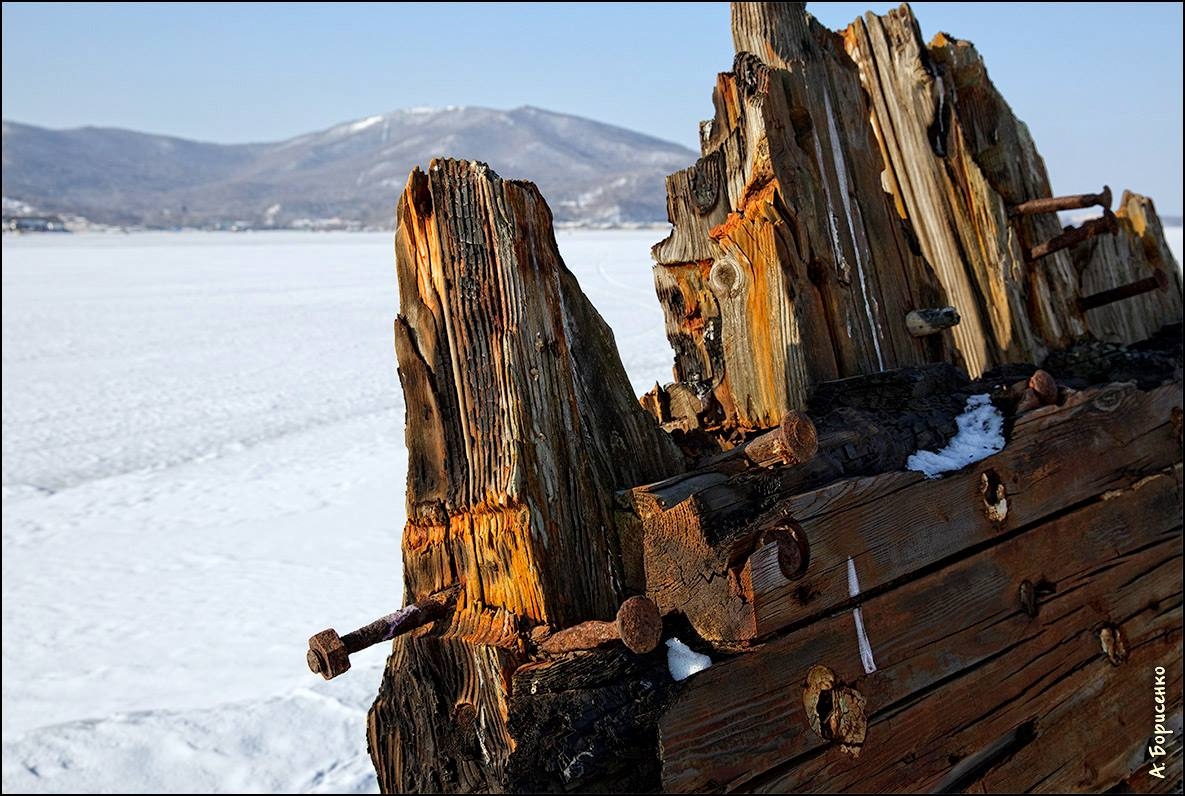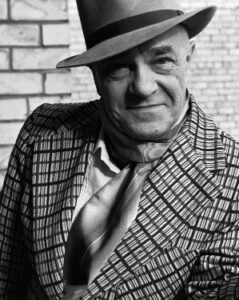About the Author

Vladimir Kozlov is a writer, screenwriter and documentary filmmaker. He was born in 1972 in Mogilev, Belarus. After graduating from Mogilev University, Kozlov moved to Minsk and then to Moscow. His coming-of-age coincided with the collapse of the Soviet Union, which is reflected in his early work. Kozlov is the author of a dozen books of prose and non-fiction, including Gopniki (Hoods), SSSR (USSR), which was shortlisted for the Big Book Prize, and Domoy (The Return), which was shortlisted for the National Bestseller Prize. He was nominated for GQ Russia’s Writer of the Year in 2011 and 2012.
Kozlov’s book USSR: Diary of a Perestroika Kid has been translated into English. The story of the teenagers in this book takes place in the year of the Chernobyl disaster. What makes it particularly disturbing is that the vibrant life of the city and the preparations for the Victory Day celebration took place at a moment when the radioactive clouds from Chernobyl were already spreading over Europe.
Translated by Andrea Gregovich

Andrea Gregovich is a writer and translator. She holds an MFA from the University of Nevada, Las Vegas. Her translations have appeared in a number of journals and anthologies, including “Tin House”, “AGNI Review”, “Hayden’s Ferry Review”, “Guernica”, and the Best European Fiction series. Gregovich’s translation of Mikhail Tarkovsky’s Ice Flow was featured in Best European Fiction-2015 by Dalkey Archive Press.
We didn’t have practice that Wednesday. The coach met us at the bus stop at the Goods for Men store. We went to the grocery store and bought two cakes and two large cans of orange juice from the cafeteria.
The coach lived on the second floor of a building just like ours, in the same two-room apartment, except you had to walk through one room to get to the other. He had sent his wife and child to the neighbor’s. “That way they won’t bother us,” he said.
I sat on a chair by the window, right under the open transom. Children were chirping like birds in the courtyard, climbing all over the parallel bars and spreading last year’s dead grass all over the place.
“Boxing is a really interesting sport because it’s a spectacle,” the trainer said. “The way it goes in sports is the way it goes in life. If a guy is a weightlifter, this is how he goes about weightlifting…” The coach stood up, hunched his shoulders, let his arms hang down, and took two big two steps. “This is what he does in life, this is how he goes to the store, this is how he goes everywhere. A boxer, on the other hand, is always mobile. I would even say graceful. Do you know this word? Do you know what it means?”
A few of the boys nodded. I took a piece of cake from my plate, took a bite and sipped some juice, it was in a white cup with the wolf and rabbit from I’ll Get You! on it..[i]
“I remember once at a competition,” the coach continued. “It was the student championship of the Republic of Belarus. There were a lot of trained boxers who were studying at the various institutes, but there were also guys who were just students. They’d obviously never had any training. There was one guy from the Teachers’ Institute who was competing. He was a fellow from the countryside, big and strong. His weight category was eighty-five kilograms. So anyway, when he got in the ring he didn’t know the stance or anything. His opponent is circling him, jogging in place, getting ready to throw a punch. Then suddenly this collective farmer takes a wide swing, just like in a country brawl, and hits the guy with one punch. It was a knockout. All the spectators were pissing themselves; they were laughing so hard. Although it isn’t always funny. I know a boxer named Vova Kriptovic who killed a guy in the ring once.”
“Did they send him to jail?” asked Litvinenko.
“No, and why would they? He didn’t violate any rules, did everything by the book. His opponent just turned out to have a weak heart. Generally speaking, boxing – and really, this is true of any sport – is always a benefit in life. I’m not talking about the obvious things like getting in a fight to defend a girl’s honor,” the trainer looked at us. “That stuff goes without saying. I’m talking about something else. For example, it made things much easier for me in the army. I graduated from the history department at the teacher’s institute. They didn’t have military classes there so they took me in the army after I already had my diploma. They sent me straight to Pechi, next to Borisov. Have you heard of Pechi? It’s a pretty crappy place to be stationed. The regimen was there and everything else about it. Our wake-up call was at six o’clock in the morning. I had late classes at the university so I was used to waking up around ten. Anyhow, maybe some of you will have this opportunity.”
“Why weren’t you assigned to the sports unit?” asked Kostin, a short guy from the Mir-2 neighborhood.
“I have no idea how you get assigned to that one,” the trainer picked up his glass and sipped his juice. “But ultimately my situation wasn’t any worse. They recognized what a good boxer I was when I was still at college. Right away the commander told me: let’s have you focused on training. Well, I trained, won first place in the unit, then first place in the division. At regionals I got second just as easily. Then that was it – from then until I was discharged I never once held a gun in my hand or marched in formation. Just training and competitions. They let me go home a lot too. The only orders the commander ever gave me were, buy me this in Mogilev, buy me that. But I didn’t waste my time looking all over for it – I just bought whatever shit I could find in GUM.”
“Did you hear about that girl who went to America?” asked Kostin. “Like, she wrote a letter to Reagan or something. A kid from America came here and then this one went over there.”
“Katya Lycheva?” I asked.[ii]
“I don’t care if her name was Lycheva or Gorbacheva, I would totally go to America,” he said.
“America probably wouldn’t turn anybody away,” said the trainer. “America is America.”
*
There was half an hour left before training. The gym was still closed, the cloakroom too.
“Let’s go inside the institute,” suggested Kuzmenok.
We walked up to the second floor, went in the first door and stood on the balcony overlooking the gym. It was more than twice the size of the one where we had training. There was a real football goal with a net in it under the basketball hoop.
There were students running in the gym for their P. E. class. “I figure they must separate babes and guys for P. E. here,” said Kuzmenok.
“Yeah, I know. Natashka told me. Her class is separated too,” I said.
P.E. was taught by a tall bald guy. The students were all wearing shorts and t-shirts in different colors and fashions. Their breasts were bouncing around under their t-shirts as they ran.
“That one’s hot, do you see her?” Kuzmenok pointed at one with a big chest and butt. “Would you screw her?”
“Yeah,” I said. “Would you?”
“Me too. Who else?”
“That one,” I pointed. “And that one. And probably that one.”
The PE teacher told the girls to stop. The students turned their backs to us and began stretching. I could see the outline of their panties under their shorts.
“Now we will work on sparring,” said the trainer. “You, Kuzmenok, you’ll spar with Frolov.”
“Get ready to see a knockout,” Kuzmenok whispered to me. “I’m gonna smack him around like a little puppy.”
Frolov was short and compact, almost fat. I didn’t know what neighborhood he came from. He was almost always quiet. He came to practice alone and left alone. alone, almost always, since the first time we went to practice. He wasn’t there on Volkov’s birthday.
Kuzmenok and Frolov punched each other with their gloves, went to their corners, then touched gloves again. Kuzmenok threw a right uppercut. Frolov dodged it, threw a hook to Kuzmenok’s jaw, a cross to his stomach, and gave him a series of jabs. Kuzmenok ran back to his corner, danced in place, ran at Frolov again, faked right, jabbed left, then left again. Frolov deflected the blow and crossed to his gut. Kuzmenok gasped and stopped. Frolov punched him full force in the jaw. Kuzmenok crashed down to the oil cloth floor of the ring.
“Knockout!” yelled the guys.
Frolov crawled out of the ring. Somebody patted him on the back. Frolov didn’t smile. He wiped sweat from his brow with his glove, which tore open a pimple and spread a little drop of blood. Kuzmenok got up and crawled out of the ring on the other side.
“I guess he totally overpowered him,” the trainer looked at Frolov, then at Kuzmenok. “I didn’t intend for this to happen. I thought this bout would be an example of equally matched strength. Alright, let’s have the next pair get up there…”
Kuzmenok and I went to the bus stop. He was still all red. One of his cheeks was swollen. “He got off easy,” Kuzmenok said. “That moron trainer had no right to say our match was over. I would have ended him.”
“He beat you,” I said.
“What? He did not kick my ass; did you get that? He just got off easy. And what, do you think you kicked Skvortsov’s ass?”
“I never said I did. It was a tie.”
“Ours was a draw, too.”
“Oh right, a draw,” I said.
“Okay, so what if he kicked my ass,” he said. “But don’t blab about this at school, alright?”
Mama and Papa were sitting in the kitchen eating sausage patties. Natasha wasn’t home.
“Has training been over long?” asked Mama.
“Forty minutes ago. I’ve been on my way home since then.”
“It’s best that you come straight home. Rather than what you do, goofing around out there all evening. The result of that business is evident in your grade book. All 3’s and a zero for conduct for the week. I can’t fathom why he signed up for boxing,” she said to Papa.
“Boxing is a good idea,” said Papa. “A fellow must learn to stand up for himself. I support him on this one.”
“It’s fine so long as it doesn’t interrupt his studies. Only a few months left until the end of the year, and you have so many 3’s to fix.”
“I’ll fix them,” I said. “You don’t need to worry about that.”
“We’re not worried about anything. You’re the one who should be worried, that you’ll end up with 3’s this year.”
“I could care less.”
“Seriously? What would make you say that?” Mama said. “You could care less about your progress report?”
“Progress reports don’t mean anything. Natasha only got three 4’s and the rest 5’s, didn’t she? And then at the institute she got all 3’s.”
“This conversation isn’t about her, it’s about you.”
“Quiet, listen to what they’re saying!” Papa got up and turned up the radio.
“…an accident at the Chernobyl nuclear power station,” said the announcer. “There were two deaths as a result of the explosion at the second reactor, as well as a few isolated occurrences of background radiation.”
*
The school’s parade formation walked down Peace Avenue, past the school supply store, the Sausages store and the Enlightenment bookstore, crossed at the end of First of May Street and came out on Lenin Square. The portraits hung from the sixth floor of the House of Soviets: Marx, Engels, and Lenin. Engels’ head was very small and Lenin’s was very big. On the side with the portraits, starting on the second-to-last floor, there was red material draped from the windows. Below it, on the Lenin Square side, there were even more portraits. The first one on the right was Gorbachev, the rest I didn’t know.
Once Papa took me with him to a parade when I was little, but we didn’t stand with the formation from his factory, just walked. One time we saw the GUM women’s brass band walking on First of May Street, all of them in yellow hats with black stripes, white shirts, blue skirts and yellow high-heeled boots. Their hairstyles were the only things different about them: some had ponytails, some were just long, and a few had theirs cut short.
Dolgobrodov said to Timur: “I called my sister in Dniepropetrovsk – she said there’s already a panic there because of the emergency at the power station. Supposedly it wasn’t just two men who died but several dozen and there’s serious nuclear contamination…”[iii]
“I was listening to Voice of America – on there they said the radioactive cloud is moving across Europe, meaning we might already be covered in it…”
“What does that mean?”
“That means that we really shouldn’t have gone outside today for the parade, especially with the school children. But everything’s always like this. We have serious conversations only about perestroika and democracy…”
“Alright, alright, you don’t need to yell about it. Especially around the pupils.”
“You think they don’t understand anything? They’re grown up enough to get it already.”
I woke up…It was cloudy out the window. It had probably rained during the night. The rails on the balcony were wet. Drops were hanging from the antenna wires. Far away, behind the houses, a train was going past. The radio was playing in the kitchen:
Today is Victory Day
The scent of gunpowder
Permeates this holiday
With gray hair in our whiskers
We will find joy
With tears in our eyes
Victory Day!
Victory Day!
Victory Day!
[i] I’ll Get You! was a classic Soviet cartoon in which a villainous wolf was forever trying to capture the protagonist rabbit.
[ii] Katya Lycheva was a Soviet schoolgirl who was invited to visit the USA in 1986 in response to an earlier visit to the Soviet Union by American schoolgirl Samantha Smith in 1983. Lycheva’s visit was highly-publicized in the Soviet media and she was for a short time a celebrity.
[iii] Dniepropetrovsk is a major city in eastern Ukraine downstream from Chernobyl on the Dnieper River.


 Maria Rybakova was born in Moscow. She studied Greek and Latin in Russia, then in Germany, and subsequently in the USA. She currently resides in Almaty, Kazakhstan. Her first novel, Anna Grom and Her Ghost, was published in 1999 and translated into French and German. Rybakova is a recipient of numerous literary awards in Russia, including Students’ Booker Prize, Eureka Prize, the Russian Prize and others.
Maria Rybakova was born in Moscow. She studied Greek and Latin in Russia, then in Germany, and subsequently in the USA. She currently resides in Almaty, Kazakhstan. Her first novel, Anna Grom and Her Ghost, was published in 1999 and translated into French and German. Rybakova is a recipient of numerous literary awards in Russia, including Students’ Booker Prize, Eureka Prize, the Russian Prize and others. Elena Dimov was born in Vladivostok and grew up in the Russian Far East. She graduated from the Far Eastern Federal University with a master’s degree in Oriental Studies and Chinese Language. She holds a Ph.D. in Russian History and Culture from the Russian Academy of Sciences in Moscow. After living in Europe, she now resides in Charlottesville, where she teaches Russian language and culture. Her primary scholarly interest is in contemporary Russian poetry.
Elena Dimov was born in Vladivostok and grew up in the Russian Far East. She graduated from the Far Eastern Federal University with a master’s degree in Oriental Studies and Chinese Language. She holds a Ph.D. in Russian History and Culture from the Russian Academy of Sciences in Moscow. After living in Europe, she now resides in Charlottesville, where she teaches Russian language and culture. Her primary scholarly interest is in contemporary Russian poetry.

